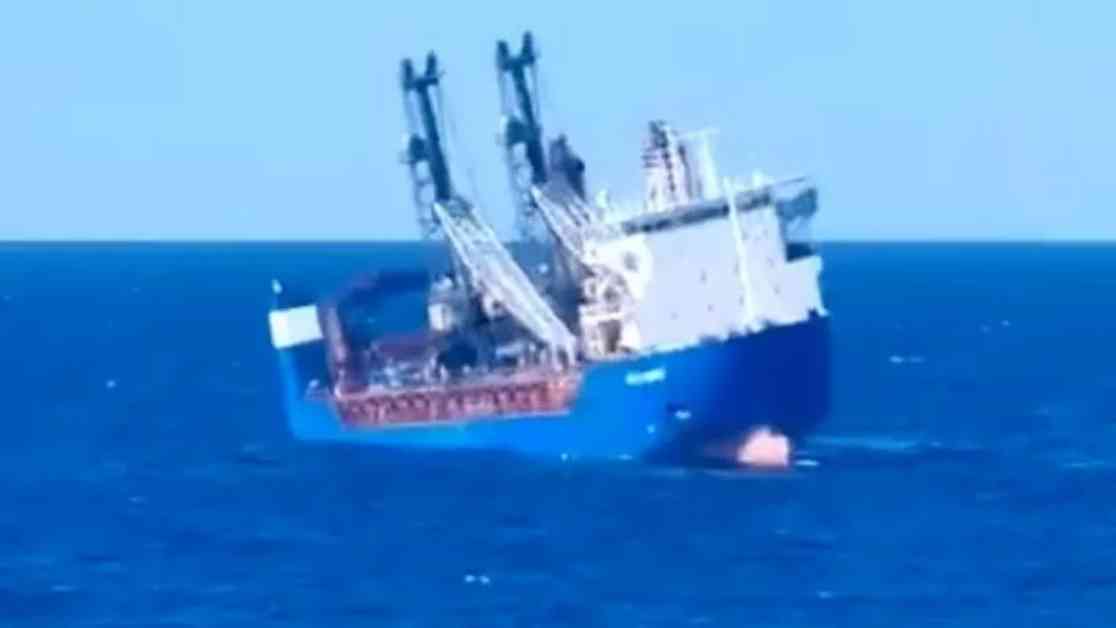Russian Cargo Ship Ursa Major Sinks in Alleged Terrorist Attack
On December 23, the Russian cargo ship Ursa Major, part of Moscow’s military logistics fleet, sank in the Mediterranean Sea between Spain and Algeria. The vessel, owned by Oboronlogistika, a Russian Defense Ministry subsidiary, was previously known as Sparta Three. According to crew testimony, three explosions occurred on the ship’s starboard side near the stern at 13:50 Moscow time, causing the vessel to list up to 25 degrees to port as it took on water.
The Explosions and Aftermath
Oboronlogistika reported discovering a 50 by 50 centimeter hole with edges pointing inward, along with the deck being covered with shrapnel. Despite the blasts, the company stated that the vessel was not overloaded and described Ursa Major as one of Russia’s largest cargo ships, capable of carrying up to 9,500 tons of cargo. The cargo on board included two portal cranes, two crane buckets, two ship hold covers, a 20-foot container with cover equipment, and 129 empty containers, totaling 806 tons.
The Sinking and Rescue Operation
The explosion reportedly occurred in the engine room, leading to a rescue operation involving several ships, including a Russian military vessel. Fourteen crew members were rescued and taken to the Spanish port of Cartagena, while two crew members remain missing. The distress signal was received by Spain’s Maritime Rescue Service when the vessel was approximately 57 miles off the coast of Almeria.
The Speculations and Impact
While the vessel was officially declared to be heading to Vladivostok via the Suez Canal, speculations suggested it may have been bound for eastern Libya. The sinking of Ursa Major weakens Russia’s position in the Mediterranean and globally, creating a sense of threat to Russian naval and military shipping. This may require Russia to allocate more resources to defend its assets globally, potentially affecting regions like Ukraine.
The sinking of the Russian cargo ship Ursa Major in the Mediterranean has raised questions about the security of maritime routes and the implications of such incidents on international relations. It serves as a reminder of the risks faced by seafarers and the challenges of safeguarding vessels in volatile regions. As we reflect on this tragic event, let us not forget the human stories behind these headlines—the courageous crew members who risk their lives at sea to keep global trade flowing. Let us honor their dedication and resilience as we navigate the complexities of a world where threats can emerge unexpectedly, even on the open waters of the Mediterranean.

















